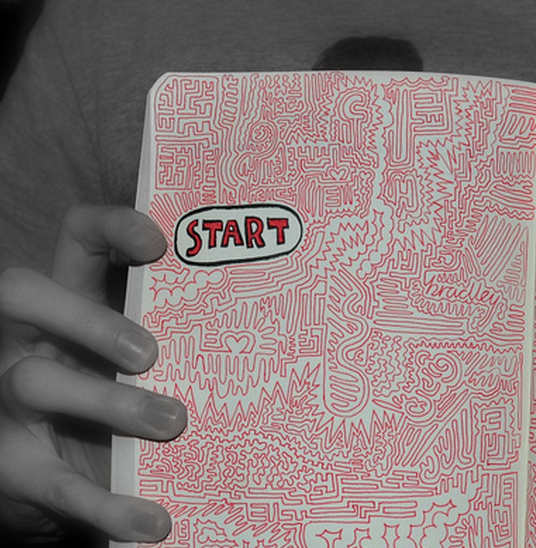Three Things I Know Are True: Writing Books

I’ve been attempting to find “true north” in a lot of things lately. This new series explores what I believe in different areas of work and life. Your answers may differ; the point is to find what’s true for you.
—
Today’s topic is writing books. Here are three things I know are true.
1. The basic process is easier than most people think.
As I’ve explained before, it’s not that hard to write a book. A book is composed of a number of chapters and words. If you break down the process in a logical manner, you can see approximately how many words are required on a daily or weekly basis to achieve the goal in whatever time period you set.
No idea what time period to set or how many words the finished product should be? Obviously, both of these factors vary a great deal—but here’s a general rule:
An average non-fiction book will be around 60,000 words and take approximately 6-9 months to complete.
Of course, you might struggle, you’ll probably fall behind at least once, and you may even have to tear things up and start over. All of that is normal. But if you want to write a book (many people do), the first step is to set the goal and understand what the goal requires.
Then you have to sit down and work. One approach: write 1,000 words a day, six days a week.
2. The higher-level process is harder than most people think.
The good news is that parts of writing a book are easy, but the bad news is that other parts are hard. What’s hard? Oh, just that whole process of creating a cohesive structure and narrative, then ensuring that the 60,000 words you write are more than just a series of disconnected thoughts.
These days I’m allocating less time to the writing process and more time to editing. One of these things is much more exciting than the other (hint: writing), but in the end what matters isn’t how many words you wrote or how long it took, but how well the overall product comes together.
If this feels discouraging, well, just start with the writing part.
3. It’s “worth it.”
Many people wonder about the merits of writing “old-school” books when so much content is digital or multimedia (or both). But for me, it’s certainly worth it, for many different ways.
I’ve always loved to read, so for me there was no question that when I became a writer, I’d want to write a book.
Financially speaking, I make more money on the products and courses I produce myself, but I reach a totally different group of people through books. I’m fortunate that my books are in dozens of countries and at least twenty languages—I could never reach a whole Polish or Japanese audience on my own, for example.
Having a book also gives you a story. It’s a cornerstone. Some authors say that their book is essentially a business card for their other work. That’s not my perspective by any means—remember, I like books—but it’s true that having a book, especially one published by a major, traditional publisher, can help to open doors elsewhere.
If you can make a good living at writing (don’t believe the hype about every author being broke; some of us are doing fine), that’s even better. If not, though, it can still be “worth it.”
—
How about you—what three things do you know to be true about books or writing in general? Feel free to borrow this new format for your own blog, journaling, or just thinking.
###
Image: Charlie







